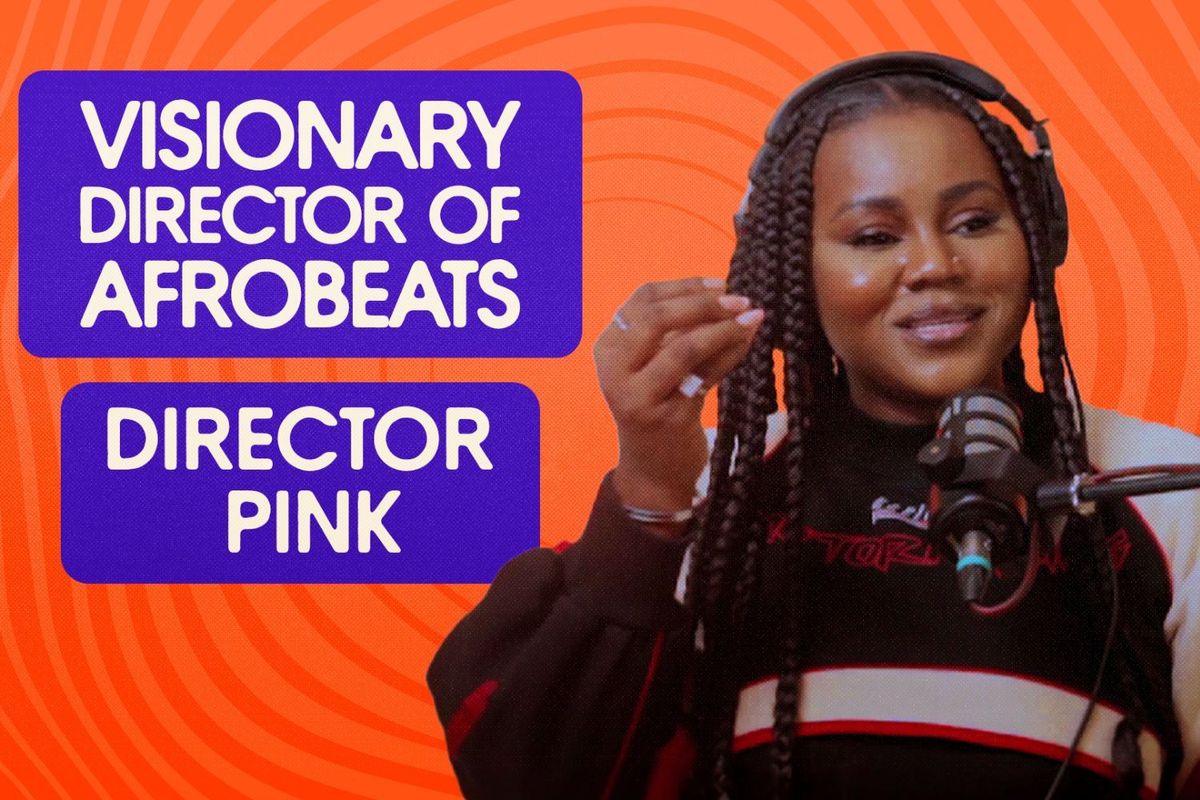How Director Pink Visualizes the Imagery of Afrobeats
On the latest episode of Afrobeats Intelligence, the music video creator Director Pink discusses her roots in the scene and how she translates music into wholesome visual experiences.

Nigerian music video director, Director Pin, sits with Joey Akan on Afrobeats Intelligence to discuss the imagery of Afrobeats.
The imagery of Afrobeats is massively influenced by music video directors, who curate an artist’s visual brand and consequently, their representation in the minds of the audience. Music videos have always been important, and even in the presence of several new media forms, its relevance remains visible, as clearly seen in the work of Director Pink, who has been a frontrunner in the scene over the past half-decade.
On the latest edition of Afrobeats Intelligence, we get an intimate look into the world of visuals through the experienced perspective of Pink. The episode begins with host Joey Akan asking where she finds the intersection between what goes into her ear and what people should see. “You hear some songs and it’s really hard — it’s getting harder sometimes — to really pick out what you would want to represent visually,” she says, “but most times when I get a song, I always analyze a few things; what’s the song talking about, how I research about the artist as well, then I also brainstorm on what the song actually needs to push it. So I have to boost the song with the video; it’s also important”.
Pink admits that she enjoys visualizing new artists, since music videos must have some continuity across different songs. The intricacies of visually representing an artist come to the fore, as the director reveals the tools of character-building: the mood associated with an artist, the lighting choices, the progression of scenes. She says: “I always ask some questions, ‘what’s your vibe like?’ ‘What kind of artists do you listen to?’ Some of them are also taking over very old artists that have left a legacy, some of them want to follow those footsteps. It’s more like trying to understand and know the artist deeply, and actually try to bring that out.”
From the sound to fashion to image, the episode reveals all the many considerations the video director must influence. Her work with Chike comes to mind, as she’s largely curated his perception as a warm loverboy, their creative partnership beginning from the Simi-featured remix of “Running.” Between the vivacious frames of “Egwu” and the melancholic symbolism of “Man Not God,” we see a director attuned to the work of their client, sharing the creative process with as much gusto.
In this conversation, Pink is eloquent and inspirational, revealing the stories and techniques that have shaped her career. Now in her mid-20s, she’s been on the journey for about a decade, surmounting several challenges to rise towards the zenith of her craft. “It was just making images,” she says about the initial appeal of music videos. “The fact that you’re able to do anything in just three minutes. It’s not like a film where you’d probably stick to a particular story, and you can go outside the box a bit, but you don’t really have that much leverage. With music videos, you can do a million and one things.”
- Bella Shmurda: The Formation of Afropop’s Most Spiritual Man ›
- Tiwa Savage Talks Legacy, Motherhood and the Demands of Inspiration on Afrobeats Intelligence ›
- Timaya Reflects on Legacy, Hustle, and Afrobeats’ Early Days on 'Afrobeats Intelligence' ›
- Gyakie Expresses the Struggles & Success of a Life in Music on ‘Afrobeats Intelligence’ ›
- Four New Podcasts Are Coming to OkayAfrica and Okayplayer ›
- Afrobeats Intelligence: Lanre Masha on Authenticity and the Evolution of Nigerian Music ›
- Joeboy: From Star Signee to Budding Label Boss ›

